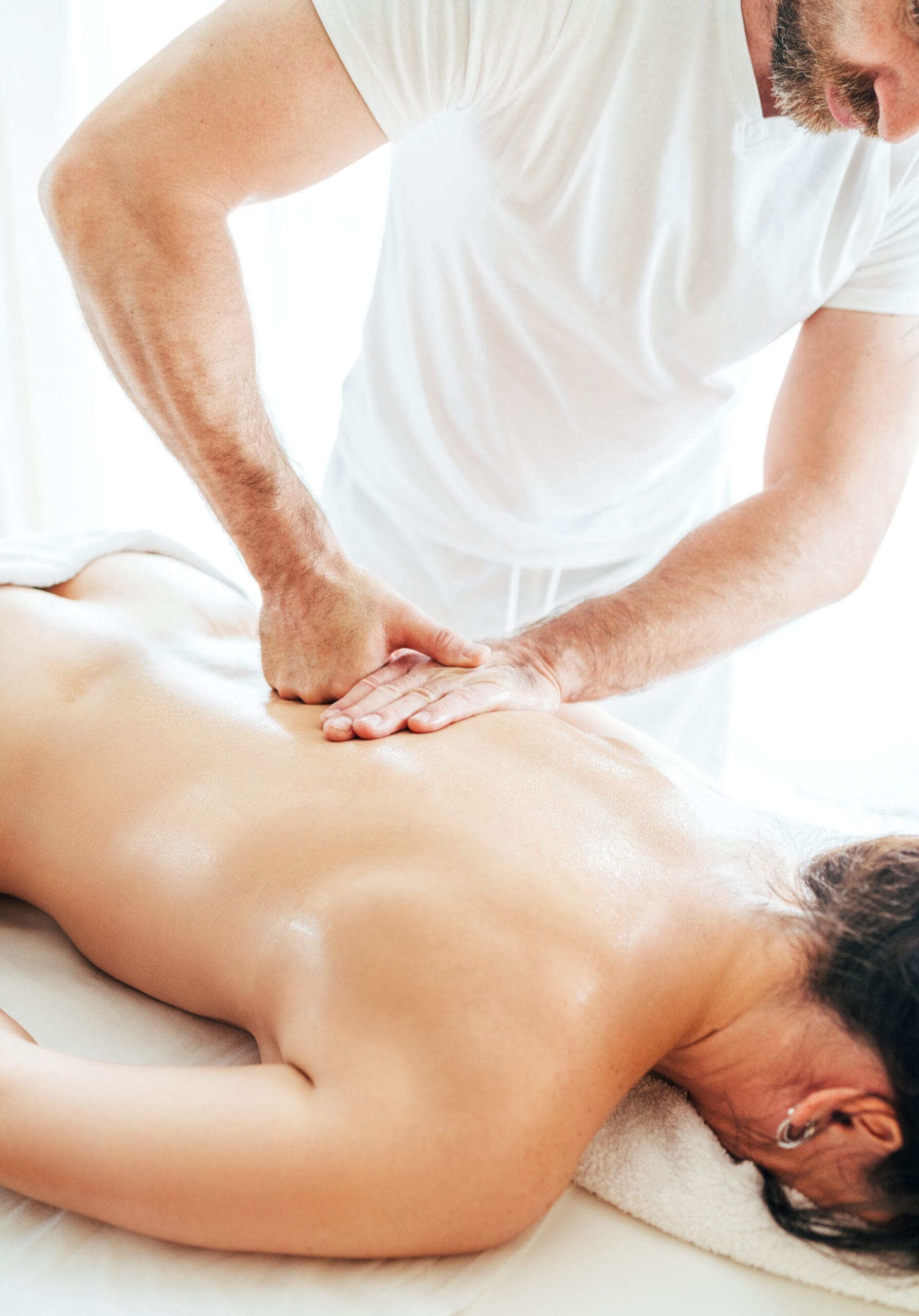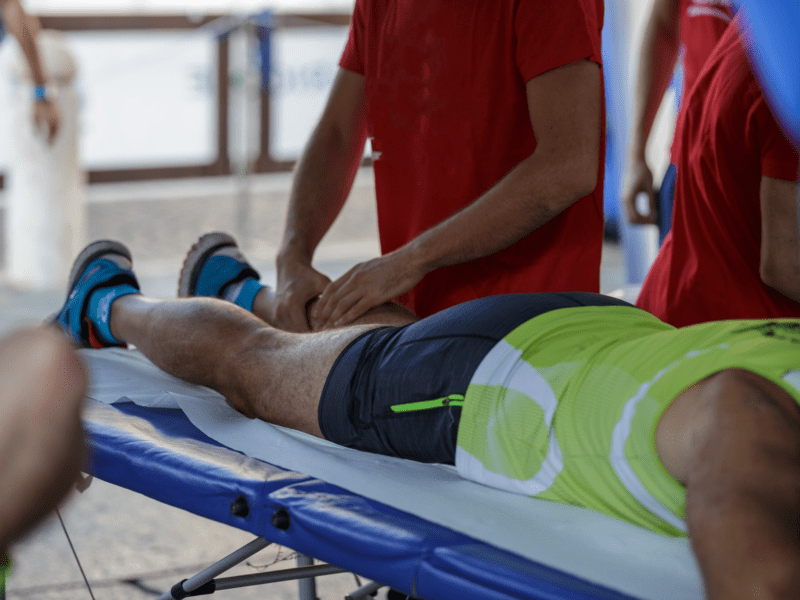What qualifications do I need to be a Massage Therapist?
Everything you need to know about qualifications to become a Massage Therapist
Are you considering a career that combines the art of healing with the science of human anatomy? Becoming a massage therapist might just be your calling. In today’s fast-paced world, stress and tension have become everyday companions for many. As a massage therapist, you have the unique opportunity to provide relief and improve well-being, making a tangible difference in people’s lives.
The journey to becoming a massage therapist is not only rewarding but also offers flexibility and creativity in your professional life. Whether you’re drawn to work in tranquil spa settings, bustling wellness centres, or even start your own practice, there are countless avenues to explore. This career path allows you to continually grow and expand your skill set with various specialisations such as sports massage, aromatherapy, or deep tissue techniques.
Moreover, the demand for skilled massage therapists continues to rise as more people recognise the benefits of regular therapeutic touch for both physical health and mental relaxation. By embarking on this path, you’re not just choosing a job; you’re embracing a vocation that fosters connection and promotes holistic health. So why wait? Dive into this fulfilling profession where each day brings new opportunities to enhance lives through the power of touch.
In this Massage Therapist qualifications guide
Qualifications to be a Massage Therapist
If you’re considering a career as a massage therapist, understanding the qualifications required is your first step towards success in this rewarding field. The journey to becoming a professional massage therapist is both enriching and fulfilling, offering the opportunity to make a tangible difference in people’s lives through healing touch.
To start with, aspiring massage therapists must typically complete a recognised training programme. These programmes cover essential topics such as anatomy, physiology, and various massage techniques. They equip you with the foundational knowledge needed to provide safe and effective treatments.
In addition to formal education, obtaining certification from an accredited body is crucial. This not only enhances your credibility but also assures clients of your commitment to maintaining high standards of practice. Furthermore, staying abreast of continuing professional development opportunities will keep you updated on the latest techniques and industry trends.
Ultimately, being a successful massage therapist requires more than just technical skills; it demands empathy, communication skills, and an unwavering dedication to improving client well-being. With the right qualifications and mindset, you’ll be well-prepared for a fulfilling career in this dynamic profession.
What qualifications are needed to be a Massage Therapist?
Becoming a massage therapist in the UK is a rewarding career choice, offering both personal satisfaction and professional growth. Understanding the qualifications required at different levels is crucial for anyone considering this path. Let’s delve into what each level entails and how they shape your journey as a massage therapist.
Level 2 Massage Therapy Qualifications
At Level 2, aspiring massage therapists lay the groundwork with foundational skills essential for any practitioner. The primary qualification at this stage is often the Level 2 Diploma in Complementary Therapies. This course introduces you to basic anatomy, physiology, and practical massage techniques. At this level, you gain hands-on experience in delivering effective treatments under supervision, setting the stage for more advanced learning.
Level 3 Massage Therapy Qualifications
Progressing to Level 3 signifies a deeper commitment to mastering the art of massage therapy. Here, candidates typically pursue qualifications such as the Level 3 Diploma in Massage Therapy or Level 3 Certificate in Swedish Massage. These courses expand your understanding of human anatomy while introducing more complex techniques like deep tissue or sports massage. At this level, therapists are expected to work more independently and tailor treatments to meet clients’ specific needs.
Level 4 Massage Therapy Qualifications
Reaching Level 4 marks an impressive achievement where specialisation becomes key. With qualifications like the Level 4 Diploma in Sports Massage Therapy, therapists can focus on niche areas that require advanced skills and knowledge – such as rehabilitative or injury-specific treatments. This level allows practitioners to operate with greater autonomy, often working alongside healthcare professionals or within sports teams.
Each qualification level builds upon the previous one, enhancing your expertise and expanding your career opportunities within this fulfilling profession. Whether you’re just starting out or looking to specialise further, understanding these pathways ensures you make informed decisions about your future as a skilled massage therapist in the UK.

Professional bodies for a Massage Therapist
Becoming part of a professional body can significantly enhance a massage therapist’s career, providing numerous benefits that extend beyond simply holding a membership card. These organisations offer invaluable resources, networking opportunities, and credibility within the industry. For instance, the Federation of Holistic Therapists (FHT) is one of the largest and most respected professional associations in the UK. Membership with FHT not only boosts your professional credibility but also provides access to insurance services, training courses, and industry updates.
Another esteemed organisation is the Complementary Therapists Association (CThA), which supports practitioners with comprehensive resources and advice tailored to their specific needs. Being affiliated with such bodies ensures you stay informed about best practices and emerging trends in massage therapy.
Moreover, these associations often host events and workshops that allow you to connect with fellow therapists, fostering a sense of community and shared learning. By aligning yourself with a recognised professional body, you demonstrate commitment to your craft while gaining peace of mind through support networks designed for both personal growth and business development.
Training fees to become a Massage Therapist
When considering a career as a massage therapist, understanding the cost of training is crucial. In the UK, courses are typically divided into levels 2, 3, and 4, each with its own associated fees and benefits.
Level 2 courses serve as an introduction to the field and generally cost between £500 and £1,000. This level provides foundational knowledge and skills that are essential for progressing to more advanced training.
Moving on to Level 3, which is often required for professional practice in many settings, you’ll find that fees range from £1,200 to £2,500. This level delves deeper into anatomy and physiology while also covering various massage techniques in greater detail.
For those aiming to specialise further or pursue roles such as sports massage therapists or complementary health practitioners, Level 4 qualifications are available. These advanced courses can cost anywhere from £2,000 to over £3,500 but offer comprehensive training that can significantly enhance your career prospects.
Investing in these qualifications not only equips you with necessary skills but also opens doors to a rewarding career path where demand for skilled professionals continues to grow.

Getting experience to be a Massage Therapist
Gaining experience as a massage therapist is an essential step towards building a successful career in this rewarding field. One of the most effective ways to start is by seeking out volunteer opportunities or internships at local wellness centres, spas, or clinics. These environments offer a wealth of practical knowledge and allow you to work alongside seasoned professionals who can provide invaluable guidance.
Another excellent approach is to participate in workshops and seminars that focus on various massage techniques. Engaging with these learning opportunities not only enhances your skills but also helps you stay updated with the latest trends and innovations in massage therapy.
Networking with other therapists can also be incredibly beneficial. By attending industry events or joining professional associations, you can connect with peers who may share job openings or tips on advancing your career.
Additionally, consider offering discounted sessions to friends and family as practice. This not only helps build your confidence but also creates a portfolio of satisfied clients who can provide testimonials and referrals.
Incorporating these strategies into your journey will undoubtedly set you on the path to becoming a skilled and sought-after massage therapist, ready to make a positive impact on clients’ well-being.



